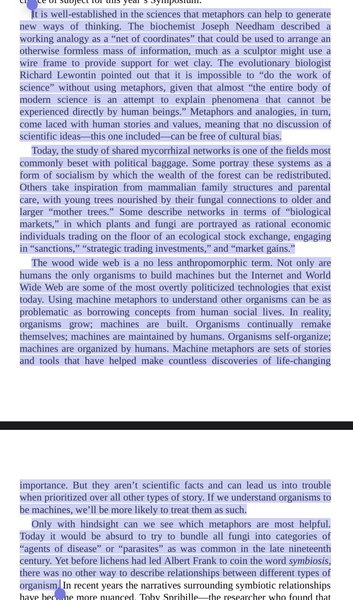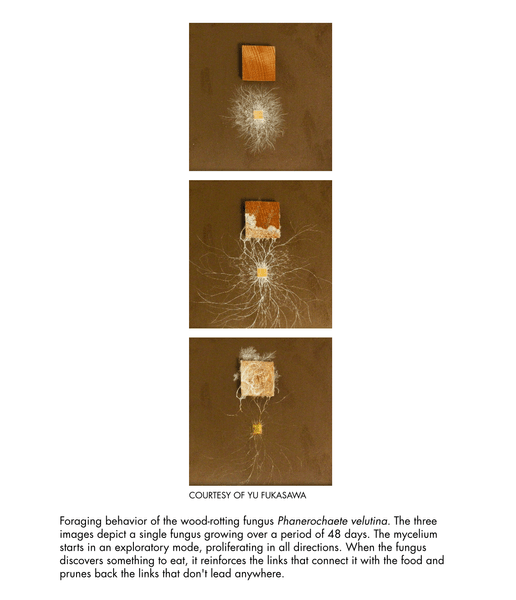fungi
The “loss of a sense of self-identity, delusions of self-identity and experiences of ‘alien control,’ ” observed an elder statesman in the field of microbiome research, are all potential symptoms of mental illness. It made my head spin to think of how many ideas had to be revisited, not least our culturally treasured notions of identity, autonomy, ... See more

Fungi still misinterpreted today because of anthropomorphism. Nevertheless, metaphors help us understand science.

It is likely that fungi have been manipulating animal minds for much of the time that there have been minds to manipulate.
No single neuronal circuit “knows” what’s going on any more than a single termite “knows” the structure of the mound, but large numbers of neurons can build a network from which surprising phenomenons can emerge. In this view, complex behaviors—including minds and nuanced textures of lived, conscious experience—arise out of complex networks of neur... See more
Many of the most dramatic events on Earth have been – and continue to be – a result of fungal activity. Plants only made it out of the water around 500 million years ago because of their collaboration with fungi, which served as their root systems for tens of million years until plants could evolve their own. Today, more than 90 per cent of plants ... See more
Fungi and algae make relationships under so many circumstances. One critical condition for symbiotic relationship = “Each partner had to be able to do something the other couldn’t achieve on its own. The identity of the partners didn’t matter so much as it’s ecological fit” They are singing a metabolic song neither could sing on their own
The difference between animals and fungi is simple: Animals put food in their bodies, whereas fungi put their bodies in the food.
Merlin Sheldrake
Merlin Sheldrake
Going viral < Going fungal